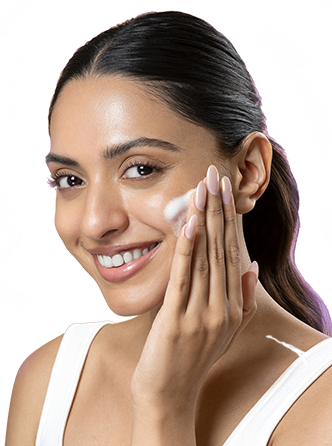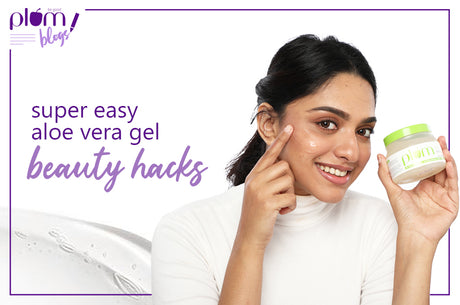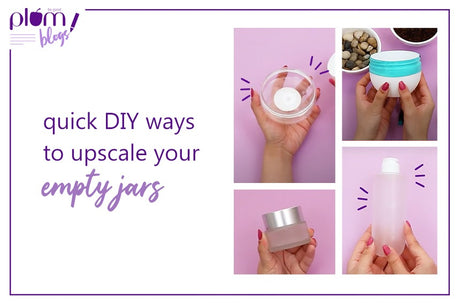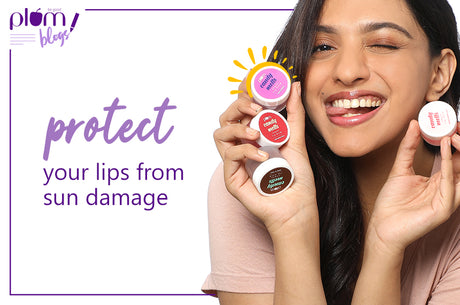
To this day, exfoliation is one of the most discussed, debated, and in some ways, even controversial skincare activity in the world of beauty. Every second beauty aficionado has their own opinions about the right way to scrub!
To make the entire process easier, here’s a lowdown on all the basics. Plus, it wouldn’t be a Plum Blog without a few basic tips to make you a true Empress of Exfoliation.
The FAQs:
What is exfoliation?
To save you from the boring, scientific explanation, here’s a simple answer to this question - exfoliation is the process of removing older and dead skin cells from your pores, along with dirt and other debris that can cause damage to your skin. In other words, it’s like a deep-cleaning session for your skin.
Why is it important?
Normally, your skin regenerates its cells approximately every 30 days, where the older cells are replaced by new ones, and the old cells make their way to the epidermis, or the outermost layer. Once they are there, they can easily be washed off by a regular cleanser.
In its natural state, our skin can actually take care of this itself, modern day lifestyles, dietary changes and pollution levels impact our skin’s ability to carry out this process on its own. This is where external exfoliants step in.
They’re usually of two types – mechanical and chemical
Mechanical exfoliation includes the usage of a scrub to get rid of the dirt and dead skin cells externally.
Whereas, chemical exfoliation includes using products like glycolic acid that penetrate beneath the epidermis and work on clearing out dead skin cells internally.
How often should one exfoliate?
This is usually where the debate starts. Many people claim many different frequencies to work the best. To that, we say, the right answer is this: there is no right answer. It all depends on the type of exfoliant you are using and what your skin agrees with.
Although, as a general guideline, many dermatologists suggest to not exfoliate more than once or twice a week.
The tips:
- Moisturize your skin immediately after exfoliation:
While exfoliation carries many, many benefits for your skin, mechanical exfoliants can also seem abrasive to your skin. Which is why, it is essential to moisturize immediately after, so as to lock in the nutrients, and provide hydration. Post-toner, of course!
- Exfoliating at night shows better results:
Your skin goes into repair mode as night falls, which is why it is best to use certain products during the night, as they really get the time to make a difference to your skin. One such product is a face scrub. When you exfoliate before going to bed, your skin gets to repair itself faster than its usual rate, and you wake up with rejuvenated and healthy skin! Isn’t that cool?
- Determine your skin type before deciding on your exfoliant and the frequency:
We mentioned this one before, but it’s important enough to reiterate and elaborate. The exfoliant you choose has entirely do to with your skin type. Generally, for sensitive skin, scrubs are not recommended, as they tend to cause irritation. At the same time, the frequency of exfoliation also depends on your skin type and the other products that are a part of your regime. Sometimes, your cleanser may contain gentle exfoliants, which means you will have to use a separate scrub occasionally. It’s important to read ingredient labels and understand your skin thoroughly before you make a decision.
We hope these tips gave you a head-start into the world of exfoliation. After all, the more you know, the happier your skin! Get scrubbin’ with plum today


















